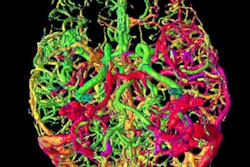The Royal College of Radiologists (RCR) has delivered a critique of new Royal College of Physicians (RCP) guidelines for the diagnosis and treatment of patients with stroke, noting a few key flaws.
The guidelines list three key factors in optimizing outcomes for patients, including urgent and more detailed imaging; prompt expert imaging interpretation; and the benefits of mechanical thrombectomy, the RCR said.
Although the guidelines recognize seven groups of healthcare professionals involved in the care of patients with stroke, they fail to identify key personnel in stroke treatment, including:
- Radiographers who perform emergency scans
- Radiologists who interpret these scans early enough for mechanical thrombectomy to be effective
- Specialist neurointerventionist radiologists who perform mechanical thrombectomy
The guidelines also downplay teleradiology's role in improving stroke outcomes, as well as the need for better technology across the National Health Service (NHS) to transfer images between hospitals, according to the RCR.
"Radiologists absolutely wish to play their full role in improving the outcomes for patients with stroke. However, there is a chronic shortage of radiologists in the UK," said RCR President Dr. Nicola Strickland in a statement. "Hundreds more radiologists are urgently needed to improve services for all those patients who could benefit from our diagnosis and treatment."



















